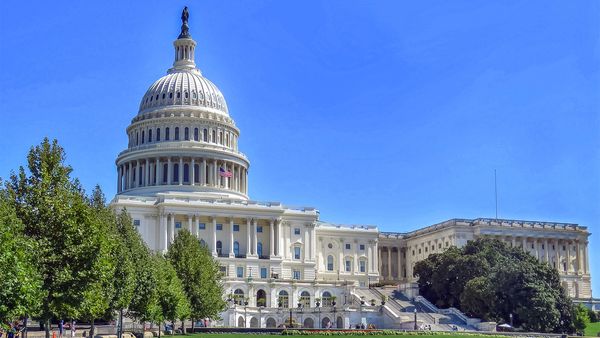
Amazon Inc. (AMZN) reports first quarter earnings on Thursday. Before that, the company recently released its annual proxy statement that includes a proposal on holding a vote on how often to vote.
Specifically, the e-commerce giant is asking investors about whether they should vote on whether or not to approve executive compensation every year, two years, or three years. Or they could just say nothing at all. The question is mostly perfunctory since shareholders at most companies do it once a year. Plus so-called Say on Pay votes are non-binding.
DON'T MISS: Alphabet Floods CEO with Hundreds of Millions
Except, in Amazon’s case, such votes are far from symbolic. Read further down the proxy statement and you’ll see why annual Say on Pay votes really do matter.
Unprecedented shareholder discontent
Last year, only 56% of shareholders voted to approve Amazon’s executive pay packages. That’s an astonishingly low number. Last year, 90% of companies in the S&P 500 approved executive compensation with at least 70% of the vote. That Amazon, one of the world’s most valuable companies with a market cap over $1 trillion, barely mustered a majority vote reflected perhaps the most severe investor discontent the company has ever experienced since going public in 1997.
56% might as well have been 0%.
The reason for rebuke centered on stock awards Amazon’s board of directors granted top executives, specifically CEO Andy Jassy. The former Amazon Web Services (AWS) chief, who succeeded founder Jeff Bezos as CEO in 2021, received an eye popping $212 million in stock awards.
The company defended the package, noting the stock would vest over a long period of time. More than 80% of the shares are scheduled to vest from 2026 to 2031.
Concerns over ESG
But according to the proxy statement, the issue wasn’t just the size of the award. After the vote, the board said it met with its largest shareholders, which collectively own 33% of Amazon stock. Some of the company's largest investors include The Vanguard Group (6.6%), BlackRock (3.7%), SSgA Funds Management (3.3%), Fidelity (2.7%) and T. Rowe Price (2.1%).
In short, the proxy says, some of investors wanted Amazon to factor specific goals in determining when Jassy and other executives’ restricted stock would vest, including benchmarks related to the Environmental Social Governance (ESG) goals.
Amazon’s response? A hard no (though the company ultimately declined to award Jassy any stock in 2022).
“Instead of seeking to placate near-term criticism by adopting near-term performance conditions,” the proxy statement says, “investors are best served by having management focused on initiatives that will support long-term shareholder value, which includes careful ESG stewardship ... this objective can best be achieved by foregoing awards that prioritize discrete financial, environmental, or social goals.”
Still, Amazon’s response to the mini shareholder revolt is remarkable in many ways. Say on Pay first originated from the Dodd-Frank Act in 2010. During those first few years, many companies would either say little or nothing about a negative vote or just ignore it all together.
In recent years, however, companies are increasingly taking Say on Pay seriously, said Patricia Lenkov, a corporate governance expert and founder/president of Agility Executive Search firm in New York. Even though such votes are just advisory, they offer investors a powerful platform to criticize the company and to start meaningful discussions on issues they find important, she said.
That Amazon would devote considerable time and space in its proxy statement on Say on Pay reflects that power. It also shows that the idea of linking ESG to executive compensation is gaining traction, Lenkov said.
No Free Pass Anymore for Amazon
Most interesting of all is how the vote seems to reflect the changing relationship between Amazon and Wall Street.
Since going public in 1997, Amazon has enjoyed an unspoken arrangement with investors. Although the company struggles to generate consistent profits, Wall Street year after year has largely ignored its enormous losses and even rewarded the company for its aggressive expansion into several geographies and industries. Amazon just seemed to play by different rules.
But things are changing. The Say on Pay vote shows an unprecedented amount of discontent with Amazon leadership. Perhaps that’s why the company now speaks of return on investments, efficiency, and profit margins instead of growth and market share.
Amazon may have largely rejected the reasons behind the Say on Pay vote. But it seems the company and Jassy have heard the message loud and clear.







